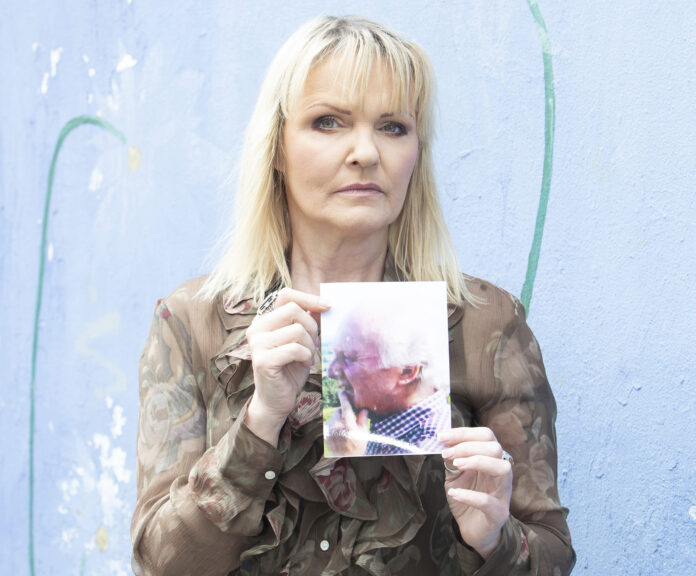
UNIVERSITY Hospital Limerick (UHL) has acknowledged a shortfall in facilities for dying patients, seven years after a single room could not be found for a 73-year-old patient dying of a brain bleed.
Limerick City businessman Eddie Moloney spent 12 hours on a trolley in a corridor at the hospital before being moved to a crowded ward. Two days later – on October 11, 2015 – he died beneath a television as visitors and patients in the ward cheered Ireland on in a World Cup rugby match
Asked this week if dying patients were now prioritised for single rooms, a spokesman for the hospital admitted it was not always possible to find a single room for patients at end-of-life and their families.
“We acknowledge that there are times when we can’t offer what a patient and their family need at the end of their life,” he added.
Mr Moloney’s daughter, Joanne Moloney, who has campaigned for better patient and family facilities at UHL since her father’s death, described the situation and the overcrowding at the hospital as “disgusting”.
“The government releases funding to our public hospitals. Our politicians should be ashamed of themselves as this is obviously still going on seven years later. It is terribly traumatic for families,” she said.
Her father, a popular Limerick businessman who ran Modesty Clothing in Foxes Bow as well as Buddy’s Bar on William Street, was brought by ambulance to UHL on October 8, 2015, suffering from a brain hemorrhage.
After being initially assessed, Mr Moloney was left on a trolley for 12 hours before being moved to a crowded ward where he died.
UHL staff informed his family, who had asked for a single room so they could say their goodbyes, that one was not available.
The then Health Minister Leo Varadkar said at the time that he was “deeply ashamed and embarrassed if anyone has that sort of end-of-life experience in our health service” adding that “it makes me more determined to do something about it”.
Ms Moloney said that while UHL had received additional single beds over the past two years, it required hundreds more to cater for an ageing population.
She agreed that her calls for “at least one end-of-life room on every ward, or every floor, or at least one room per hospital” have fallen on deaf ears.
“Leo Varadkar said seven years ago that he was ashamed about it, but what has been done? Little or nothing as far as I can see.”
A UL Hospitals Group spokesman said that “hospitals remain the most common place of death in Ireland, with an estimated 40 per cent of all deaths taking place in hospital”.
Ms Moloney retorted: “Considering that 40 per cent of us will die in hospital, then we absolutely need end-of-life rooms as a priority.”
“My family and I had no privacy saying goodbye to my father, and the mad thing is, after my dad died, we were brought into a room and offered tea and toast. The room was large enough to have had a bed, but instead it was used for tea and coffee facilities,” she said.
“I am still so angry about that, and when I mentioned it to the nurse, she understood the irony of it.
“Seven years on and nothing has changed, in fact it appears to have gotten worse,” she added.
The UHL spokesman said it “strives to ensure that every person who dies in our care does so privately, with dignity, and surrounded by those closest to them, this can be hugely challenging in a busy acute hospital like UHL, which routinely operates above its bed capacity”.
He added that “less than half of UHL’s 530 inpatient beds are in single rooms.
“Every one of these beds is in demand and the requirement for single rooms has risen significantly since the start of the Covid pandemic”.
“UHL staff have to make difficult decisions around provision of single rooms, as these are also required for proper infection prevention and control; where patients are immunocompromised, and have other complex medical or social care needs.







